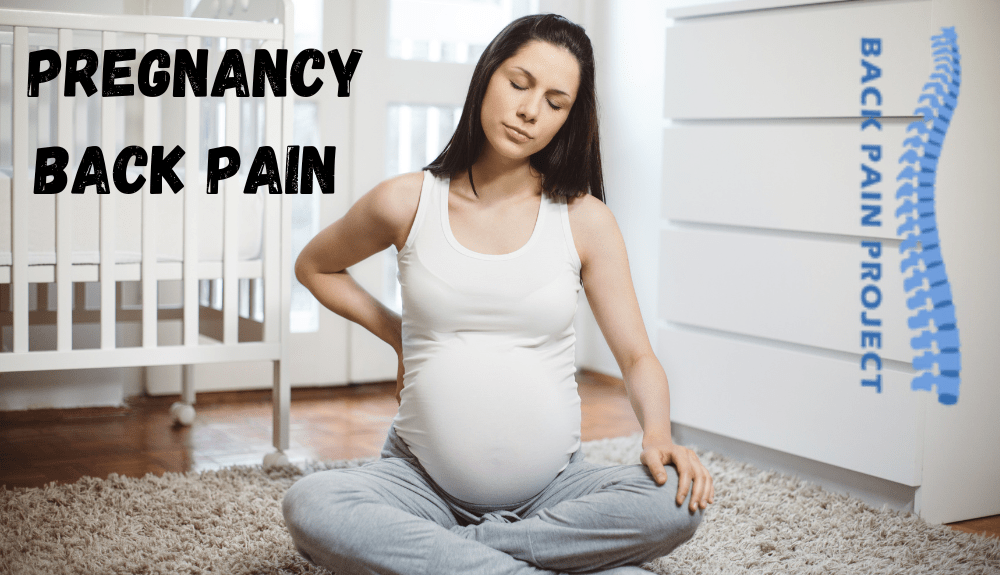
Pregnancy is an exciting and challenging time for most women. Many changes occur in the body during the first trimester, including back pain and discomfort. As a result, it’s important to know how to keep your back healthy during this period of time. Here are some tips for pregnant women on how to maintain a healthy back during the first trimester of pregnancy.
The first step in taking care of your back is understanding why it’s important to do so. During pregnancy, changes occur in the body which can cause pain or discomfort in the lower back area. This can be due to increased weight gain or pressure placed on the spine from hormonal changes. Additionally, as the baby grows larger, more strain is placed on the mother’s spine and muscles, leading to further discomfort.
With this knowledge in mind, there are several ways pregnant women can take proactive steps towards maintaining a healthy back during their first trimester. Simple lifestyle modifications such as regular exercise and proper posture can help relieve some of the pain associated with pregnancy-related back issues. Additionally, there are various products available that are designed specifically for pregnant women who experience lower back pain and discomfort. By following these tips, you can have a healthier and more comfortable experience throughout your pregnancy journey.
Fortunately, there are ways to reduce stress on the back during the first trimester of pregnancy. Pregnant women should focus on maintaining good posture by sitting and standing tall. Keeping the shoulders back helps to support the spine and reduces strain on the lower back. When standing for long periods of time, pregnant women should rest one foot on a stool to help prevent fatigue in their legs and feet.
Regular exercise is also important for maintaining a healthy back during pregnancy. Low-impact activities such as walking, swimming, or prenatal yoga can improve posture while strengthening core muscles and ligaments that support the back. Women should avoid activities that involve jerking or bouncing motions as these can put extra strain on the lower back.
It is also recommended that pregnant women use lumbar supports when driving or sitting at a desk for long periods of time. Lumbar supports help to maintain good posture and provide extra cushioning for the lower back area. Additionally, pregnant women should take frequent breaks from work tasks to give their bodies an opportunity to rest throughout the day.
Exercises For Lower Back During First Trimester
Exercises are a great way to support the lower back during pregnancy. Stretching and strengthening exercises can help ease discomfort and promote healthy posture. It’s important to be aware of your body’s needs, and only do what feels comfortable.
Pelvic tilts are an easy exercise to start with. Begin by standing with your feet hip-width apart and keeping your legs straight. Lean back slightly, arching your lower back inwards. Slowly tilt your pelvis forward, pushing out your stomach while flattening the lower spine against the floor. Hold this position for a few seconds, then relax and repeat 10 times.
Kegels are another beneficial exercise that can help strengthen the pelvic floor muscles which support the lower back during pregnancy. To do them, sit or stand with your feet hip-width apart and focus on tightening the pelvic muscles as if you’re trying to stop yourself from urinating midstream. Hold this tension for a few seconds before releasing it slowly, repeating 10 times each day.
It’s important to stay active during pregnancy but also listen to your body and take breaks if needed. Incorporating these exercises into a regular routine can help build strength in the lower back area for greater comfort throughout pregnancy.
Tips For Sleeping Comfortably to avoid back pain during first trimester
It is important to find comfortable sleeping positions during the first trimester of pregnancy. It is recommended to sleep on your left side, with a pillow between the legs and one behind the back for extra support. Try to keep your spine in a neutral position while you sleep, and avoid sleeping on your back or stomach.
Using a body pillow can also be helpful in achieving comfortable sleep. Body pillows are designed to give extra support and cushioning for pregnant women’s growing bellies, helping to relieve pressure from the lower back. Additionally, getting up frequently throughout the night can help reduce muscle stiffness and improve circulation.
To ensure that you get enough rest during this time, it is important to establish a regular bedtime routine that includes winding down with calming activities like reading or listening to music before going to bed. If you are struggling with finding a comfortable sleeping position or getting enough sleep, talk to your healthcare provider about any additional tips they may have for you.
Back Pain project caring for your back and hip pain during pregnancy
The Back Project is your resource for pain-free living, especially during your pregnancy. It is common to experience back and hip pain while pregnant. The good news is that you don’t have to accept the pain. Call 203-656-3638 today and get the care you need for your back pain while pregnant. The Back Pain Project serves Stamford, Darien, Norwalk, and New Canaan CT





